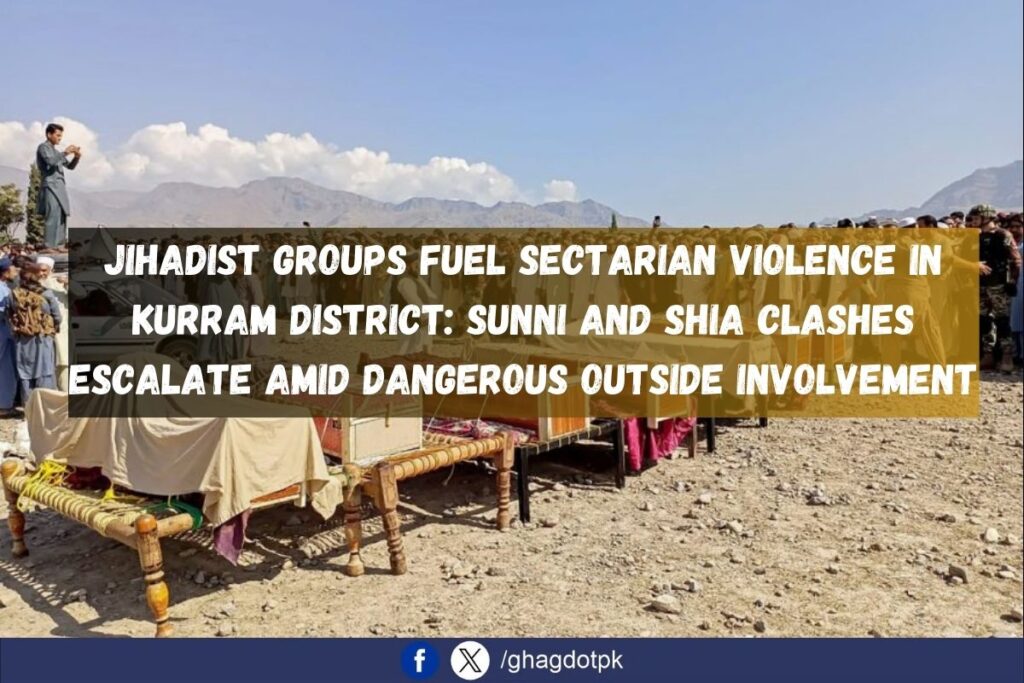Ghag Special Report
Kurram, Pakistan – Sectarian violence has erupted in the Teri Mengal area of Kurram district, with Sunni and Shia factions locked in intense fighting. What began as a localized dispute has now been significantly worsened by the involvement of external jihadist groups, who are believed to be offering support to both sides. The entrance of these militant groups has transformed the situation from a community conflict into a broader, more volatile battle, drawing international concern.
Sunni militants have surrounded Shia homes in Teri Mengal, sparking fears of a protracted siege. As clashes intensify, local authorities are struggling to regain control of the situation. The violence has already led to several deaths, though accurate casualty figures remain difficult to confirm due to communication breakdowns.
Sources report that jihadist groups, some of whom are known for their militant activities in the region, have joined the fray, escalating the violence and providing additional firepower to the warring factions. These groups are known to exploit sectarian divisions, further complicating the already tense situation. Their entry into the fray has raised fears that this conflict may not remain confined to Kurram but could spread across other areas of Pakistan.
In an attempt to control the violence, mobile and internet services have been completely shut down in Parachinar, a strategic town in Kurram. The information blackout has isolated the region, making it harder to get accurate reports and further complicating efforts for a peaceful resolution.
The violence has reached an alarming level, with eyewitnesses reporting sporadic gunfire and explosions. Despite attempts by local authorities to intervene, the presence of militant groups has made it difficult for security forces to take effective action. Tensions are rising, with both Sunni and Shia factions refusing to back down.
Kurram has long been a flashpoint for sectarian violence, with Sunni and Shia populations living in close proximity. While there have been periods of relative peace, the district has remained vulnerable to sectarian conflict due to longstanding historical tensions. The current violence, exacerbated by the involvement of jihadist elements, represents a significant escalation that threatens to destabilize the region further.
The provincial government’s response to the crisis has been widely criticized as insufficient. Despite the dire situation, there has been little action from local authorities to curb the violence or address the growing threat posed by these external militant groups. International observers are closely monitoring the situation, fearing that the violence could spill over into neighboring areas, causing widespread instability.
Human rights organizations have raised alarms, calling for immediate intervention by the Pakistani government to restore peace and security. With both local and international stakes high, the coming days are critical in determining whether Pakistan’s security forces can contain the violence, or if the region will continue to spiral into greater conflict.
The government’s ongoing failure to address these deep-rooted issues, coupled with its increasing focus on divisive political games, has fueled further unrest. The lack of effective governance in the region has left vulnerable communities at the mercy of radical groups, further complicating efforts to restore peace. As Kurram braces for the fallout from this deadly sectarian conflict, the government’s lack of action on the ground underscores a disturbing trend of neglect that could have severe repercussions for the entire region.






